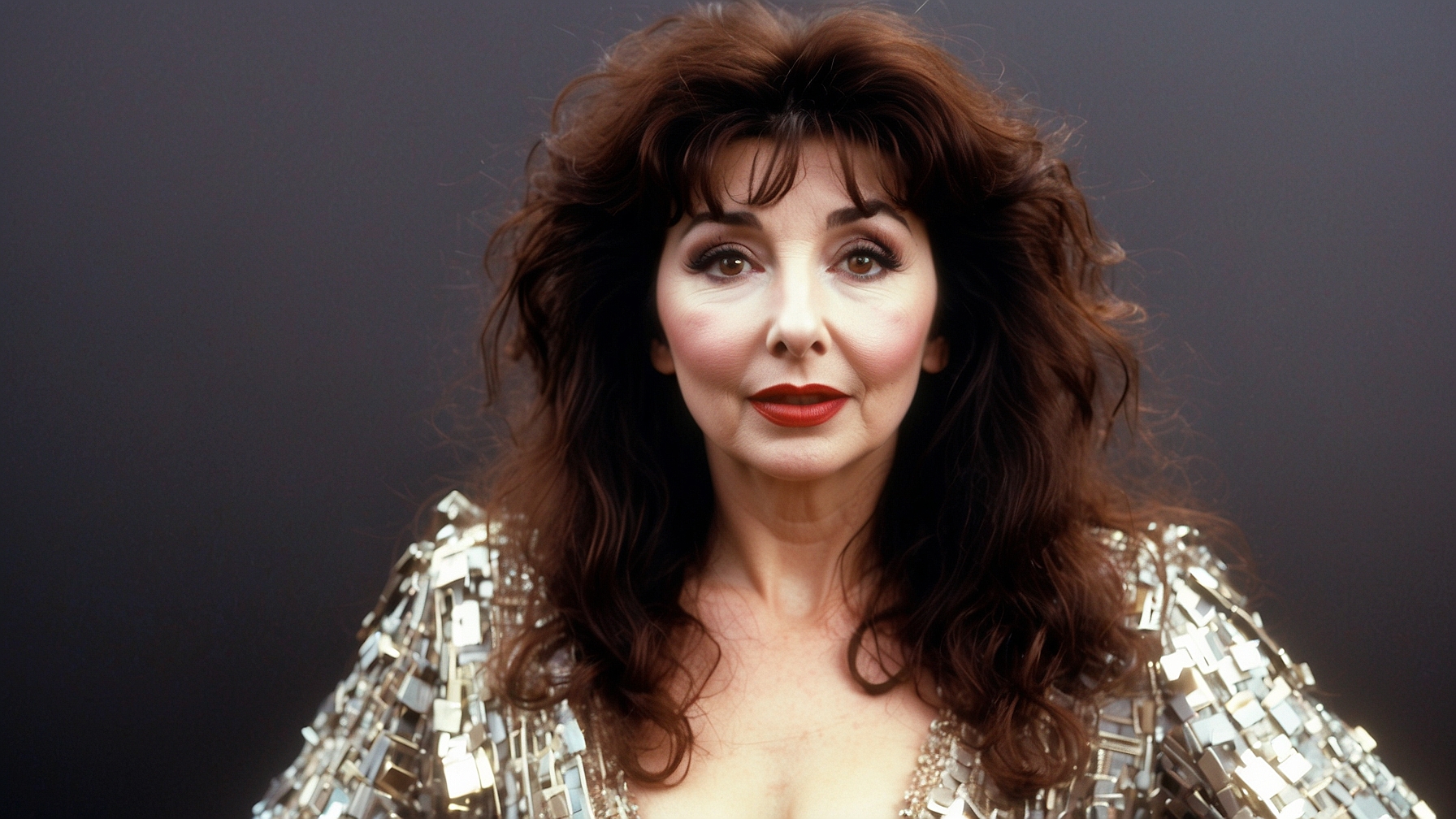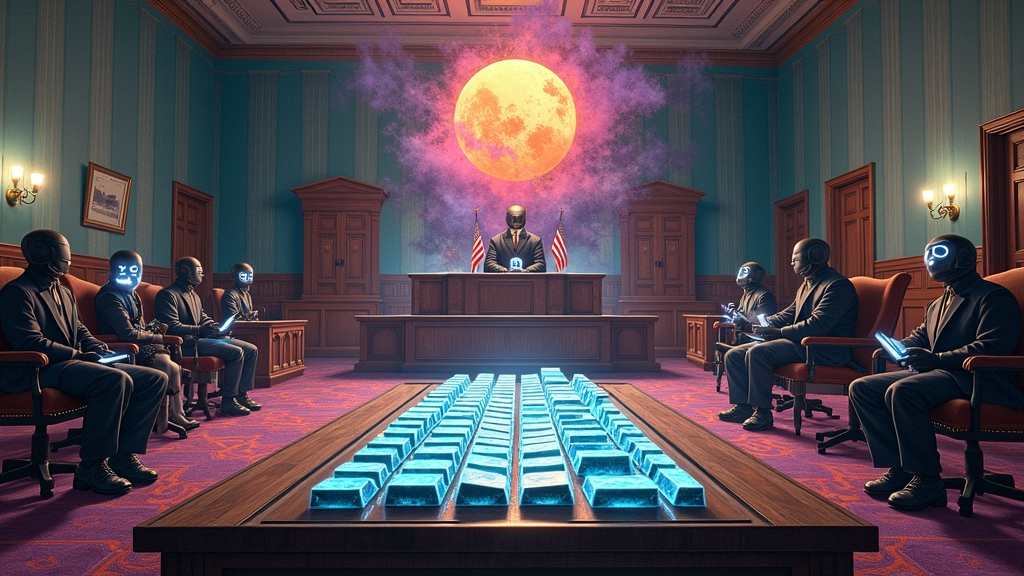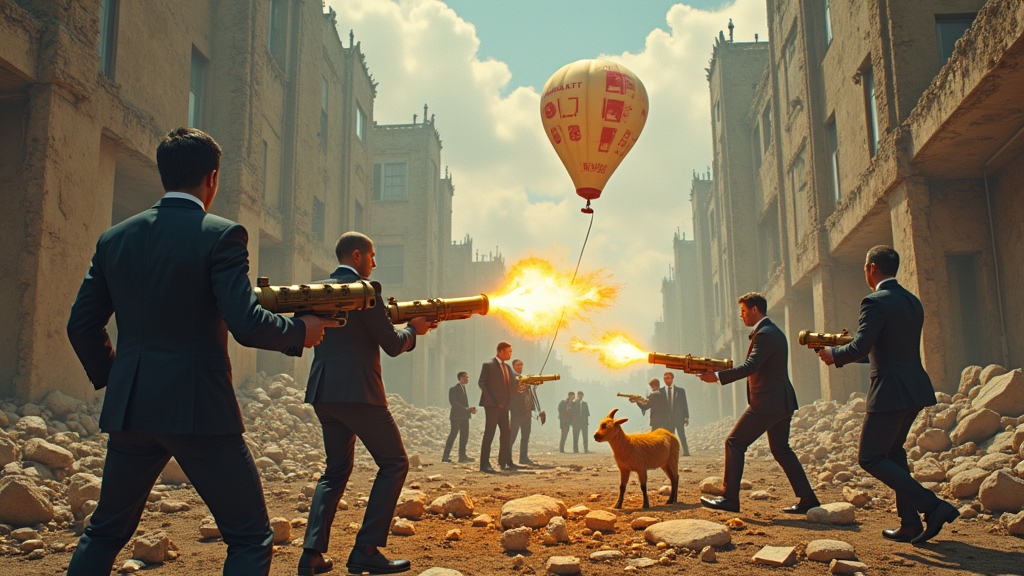Cable Bill-Gazers Demand AI Stop Making Money from Everyone Else’s Talent: Crying “Leave Us Alone, Machines!”
In what some are hailing as the greatest artistic uprising since that time Paris Hilton tried to rebuke reality TV, Kate Bush and a troupe of thespians have emerged from their bubble-wrapped lives to demand that soulless machines stop freeloading on their creativity—because they invented that shtick.
The ethereal singer-songwriter, famously known for dancing around a hill like a majestically bewildered bird, has enlisted alongside a crowd of artists including Julianne Moore, Kevin Bacon, and some other faces we’ve seen on screens but can’t quite place—Rosario Something and British Guy—marking a milestone moment in their quest to prevent AI from infiltrating their world.
Kate Bush delivered a statement in her signature cryptic fashion, stating, “If the machines want inspiration, they can find it elsewhere. Like in a toaster or something.” She later clarified, probably in interpretive dance.
These celebrities and other creatives, including renowned stars of the “Six Degrees of Kevin Bacon” game, have poured their collective puzzled energy into a petition with over 36,000 signatures, also known as every social media follower Kevin Bacon has mistakenly accumulated over time. The petition aims to thwart the “unlicensed use of creative works for training generative AI,” claiming it’s pushing their jobs towards extinction much faster than method acting or self-indulgent art-house projects ever could.
Ministers, who are currently occupied navigating the geopolitical maze of hair-splitting, are being urgently asked to establish an opt-out system to protect these irreplaceable souls from the impending robot apocalypse. “We’ve drafted a foolproof plan!” exclaimed an unidentified creative who once starred in something possibly mildly entertaining. “Opt-out paperwork will be printed exclusively on biodegradable vegan paper.”
Leading economists, however, have raised concerns that the British economy may collapse if artists are safeguarded, considering everyone and their grandmother just woke up and realized artists don’t actually contribute to GDP. “The real fear here,” whispered an overly existential minister on condition of overstayed anonymity, “is that robots might finally be cooler than indie bands.”
Famed algorithm-defending and product placement expert, Alexa S. P. Krantz, remarked, “If AI keeps snatching up our ripest intellectual property, what will become of our YouTube compilations? Who will rescue Spotify playlists from awkwardly lengthy introductions?”
While the campaign against AI continues to gain momentum, there remains a genuine fear that creatives will soon need to return to the forgotten art of, heaven forbid, creating something for actual money. Meanwhile, Britain’s beloved PM is reportedly evaluating the invasion of AI through the lens of what’s most likely the coolest season of ‘Black Mirror’ yet, secretly wondering if next month’s election could be rigged with a catchy EDM remix.
Thus continues humanity’s oldest moral dilemma: why work for your talent when you can just yell at a computer for using it?




